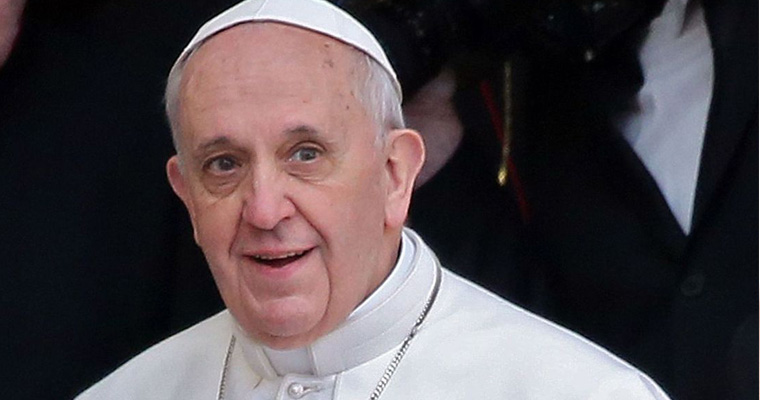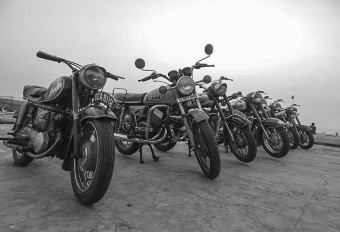If you’re like 99 percent of the earth’s population, a few days ago you would have never heard of a humble priest from Argentina named Jorge Mario Bergoglio. And even if he hadn’t ascended to the throne of St. Peter, even if he hadn’t been suddenly catapulted from relative obscurity to our planet’s most powerful religious leader – head of the world’s 1.2 billion Roman Catholics – you might have been impressed by this unassuming individual’s commitment to universal, spiritual values of humility, empathy and love.
Pope Francis, the first Jesuit and the first Latin American to assume the papacy in history, embodies much of what is good about Roman Catholicism in 2013. He had shunned the trappings of high Church office, opting for a simple apartment in downtown Buenos Aires over a cardinal’s palace. There is good reason to hope that he might actually shift attention away from our age’s contentious culture wars – from gay marriage to abortion – and towards goals that we can all agree on: lifting up the downtrodden, reducing social inequality, healing the sick and loving one’s neighbour. Symbolism counts in the Catholic Church, and Pope Francis – from his kissing the feet of AIDS victims to his insistence on riding a bus with his colleagues even after being elected pope to his breaking of protocol by asking the masses to bless him before he blessed them – is already a master of symbolism. And it’s possible he’s just what’s needed in an era of overwhelming crises for the Catholic Church.
But this is not what I’m here to talk about. Unless you’re head is buried in the Goan sand, by now you’ve undoubtedly heard about this troubling little episode called the Argentine dirty war – and the questions raised about Father Bergoglio’s role as a senior Catholic cleric during that period. My 11 years in Latin America included a stint in the 1980s, shortly after the end of the military dictatorship in Argentina. Brutal military rule was not uncommon in those days, but it can be safely said that Argentina’s version of it – with the disappearance of 30,000 people between 1976 and 1983 – was the most brutal of all. And it can also be safely said that the Catholic Church in Argentina, unlike its counterparts in Brazil and Chile, failed miserably to take a stand against the atrocities. Unlike Joseph Ratzinger (Pope Benedict XVI), who was only 14 years old when he was conscripted into Germany’s Hitler Youth movement, Father Bergoglio was in his late 30 and early 40s and head of the Jesuits in Argentina during the dictatorship – one of the Church’s most influential leaders at the time.
The notion of sin is central to Catholicism. And there are sins of commission and sins of omission. With the information we currently have available, there is no conclusive evidence that Pope Francis committed either. What we do know is this. In 1976, Father Bergoglio dismissed two leftist priests from his Jesuit order – Orlando Yorio and Francisco Jalics – and that three days later the two were arrested, beaten and held for five months, according to a 1977 report by Father Yorio, who died in 2000. In his report, Father Yorio wrote that Father Bergoglio undermined the work of the two priests in a slum by writing negative reports to bishops, ultimately expelling them from the Jesuit order. A similar account was given by Father Jalics in a 1994 book, although last week he stated in a Jesuit website that he didn’t wish to comment further on the events, that years later he embraced Cardinal Bergoglio and that “I am reconciled to the events and view them from my side as concluded.”
For his part, Pope Francis has stated and written that he worked behind the scenes to help the victims of Argentina’s dirty war, even meeting with the military junta to win freedom for the two priests. Much has been said about the Argentine Church’s silence during those dark years, especially compared to the courageous stand taken by the Catholic hierarchy in Brazil and Chile, which were undergoing military dictatorships of their own. Yet it’s also true that in Argentina, the Church’s strong ties to the military had roots dating back many decades, to the point where some Church leaders were given military escorts as a sign of respect. This, combined with the acute climate of fear and very real danger to anyone who even hinted at opposition to the junta, helps explain the Church’s silence.
The kind of tight-rope act Pope Francis said he performed during the military junta was on display again many years later, when Argentina became one of just 11 nations in the world to approve gay marriage.
All of us who have spent significant time in Latin America know that Argentina is unlike any other country in the region. Its people, mostly descendants, like Pope Francis, of European immigrants, never viewed themselves as part of the Third World. While the vast majority identify as Roman Catholics, few attend church regularly and, as evidenced by their vote to approve gay marriage in 2010, Argentinians are among the world’s most socially liberal people. It is against this backdrop that Cardinal Bergoglio, as leader of the movement opposing the gay marriage measure, made particularly vociferous statements condemning it, comparing it to the work of the Devil.
At the same time, however, the cardinal adopted an extraordinary position in a meeting with Argentine bishops, favouring “civil unions” for gay couples as a compromise solution. The idea was voted down by his peers, but the episode revealed some important qualities about Pope Francis: a deeply pragmatic streak, a keen awareness of the cultural and political nuances surrounding him, an underlying humanity.
If humility and pragmatism are to be the hallmarks of this papacy, that could bode well for a Church in crisis.
Steven Gutkin, Goa Streets’ Chief Advisor, worked as an international news correspondent for more than two decades in various parts of the world, including more than a decade in South America.




